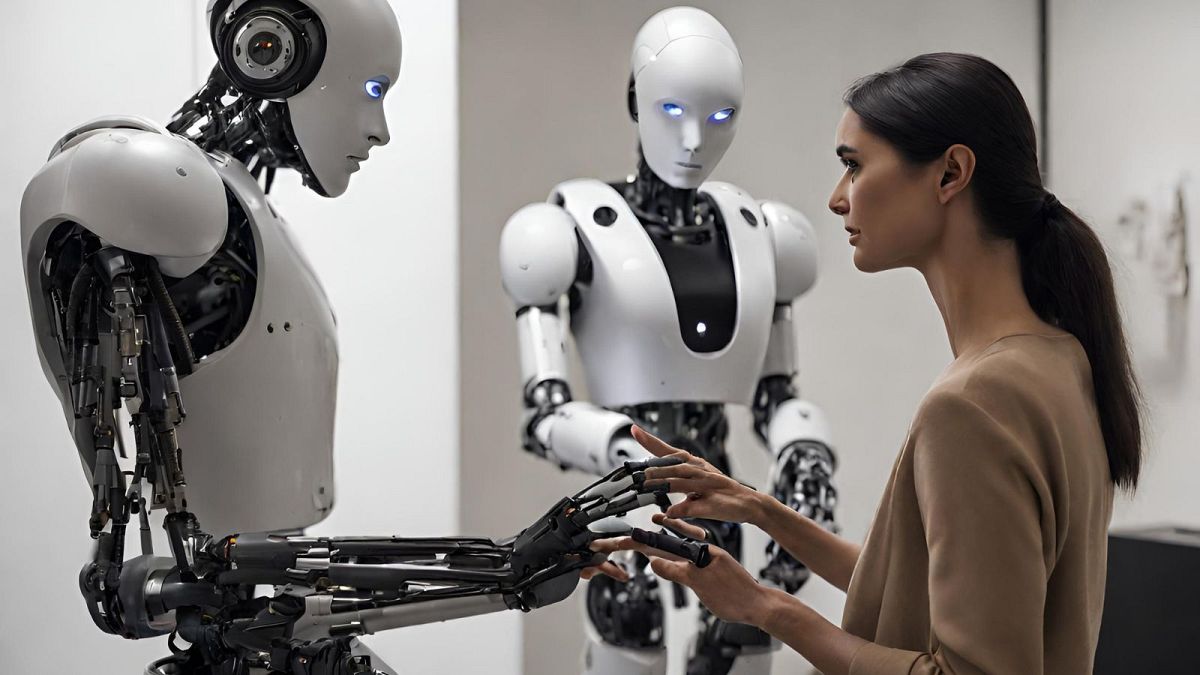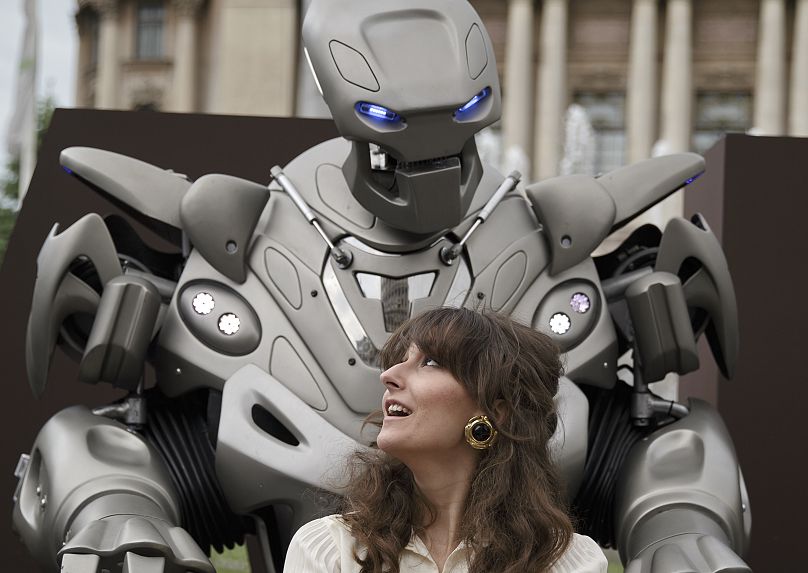Most people fear that overly sentient androids will replace human jobs and social interactions, according to the results of a new survey.
Are androids our friends or foes? It depends on the context.
Most G7 countries have mixed feelings toward robots, according to a survey conducted by United Robotics on nearly 8,000 people in the US, France, Canada, Italy and Germany, and received exclusively by Euronews Next.
Although the majority see further developments as "inevitable," many people are still concerned that in the future, robots may just get too intrusive.
People largely reject the idea of human-looking androids
The standout fear across all surveyed countries is to be somehow replaced by a robot.
Nearly 80 per cent worry they could take away jobs from people, while 71 per cent believe robots may as well take up the role of humans in social interactions.
Replacement fears are also reflected in the way people want robots to look.
An average of 60 per cent across all five countries are uncomfortable with androids and don't want robots to resemble people, or even have human traits like limbs or a face.
Boiled down, it's a "yes" to Wall-E and a "no" to Terminator.
Speaking about these fears, United Robotics CEO Thomas Linkenheil told Euronews Next that "a lot can be linked to pop culture and science fiction, which has imagined the role of robots in society without understanding the technology or the impact that robots can have on daily work life.
"For United Robotics Group, robots will never replace humans – however, they will become necessary in the workplace to respond to demographic changes and expectations of the workforce," he added.
"The essence of our vision is that robots in the workplace will allow humans to focus on high-value tasks like analysis and care, that a robot cannot replace. The idea of service robots in the workplace is to offload humans of tedious and time-consuming tasks, that can also sometimes be dangerous for health (like carrying heavy loads) to make work more enjoyable".
Robots unanimously unwelcome in primary schools
The general preference is for machines that directly depend on humans to function (79 per cent) and to learn (63.4 per cent). The use of robots to develop AI is overwhelmingly rejected (65.4 per cent).
Also, in Germany and France, the majority don't want to receive protection from robots.
The US is the only country in favour of introducing robots in primary schools and nurseries, with 51 per cent. Canada, Italy, France, and Germany, in particular (68 per cent), reject it.
Robot help welcome in health, science and explorations
On the other hand, people seem quite in favour of increasing the use of robots in sectors where it's already well established.
For example, in the industrial and digital sectors, as well as in health research, particularly for the study of viruses and DNA.
Robot developments are also welcome in fields like farming and transportation, and in general where they can make human lives easier without overcoming them.
Robot support in space and seabed explorations is also positively viewed, mostly.
"There is a growing need to keep labs and hospitals running 24/7 and respond to a critical health demand", says Linkenheil.
"Robots like uMobileLab and Kevin in the lab space respond to a workforce challenge and reduce the risk of having 'off periods' due to staffing challenges – teams on site can focus on analytics and results-driven work rather than pipetting, lab automation or even back-and-forth deliveries".
Most people still don't know enough about robots
Concerns towards robots are mirrored by responses to the question: Will robots bring more benefits or risks for society as a whole?
The vast majority are not sure - and think that there are as many benefits as risks.
France appears to be the most sceptical country, with the highest percentage of those feeling negatively about it (28 per cent).
The US is the most polarised one, (33 per cent positives vs 25 per cent negatives), while Italy results as the most optimistic country in terms of robots bringing more benefits to society (34 per cent).
In any case, only 40 per cent of people surveyed declared to be enough informed about robot developments.
Linkenheil says "unawareness comes from two places – one is the imaginative function that we can attribute to robots, the other is that robots in the workplace are still a novelty."
"We can compare this to the introduction of computers or even smartphones several years ago – there is a gap between generations that entered the workforce before these tools and generations that have been using computers or the internet since grade school," he added.
"Early introduction and interaction with these technologies will only contribute to greater understanding and acceptance of robots in the workplace".




